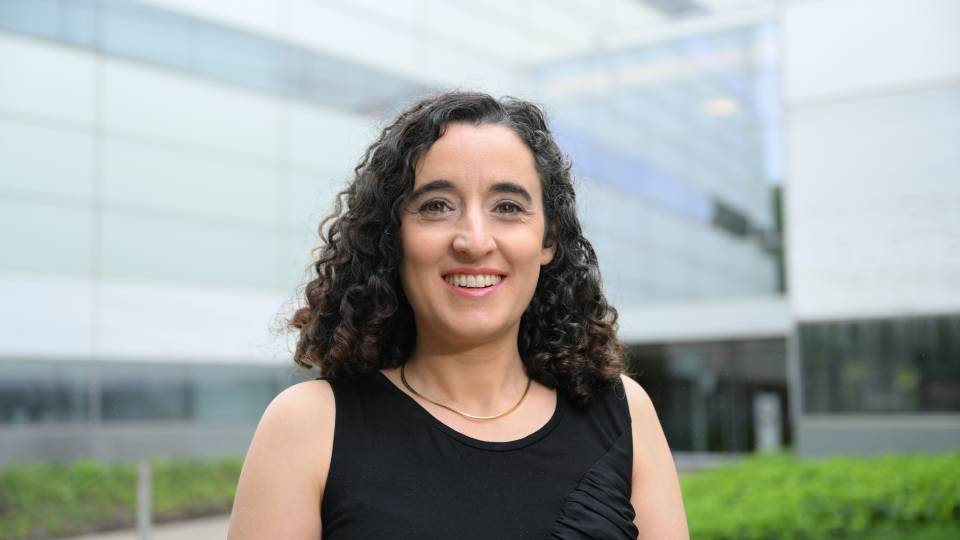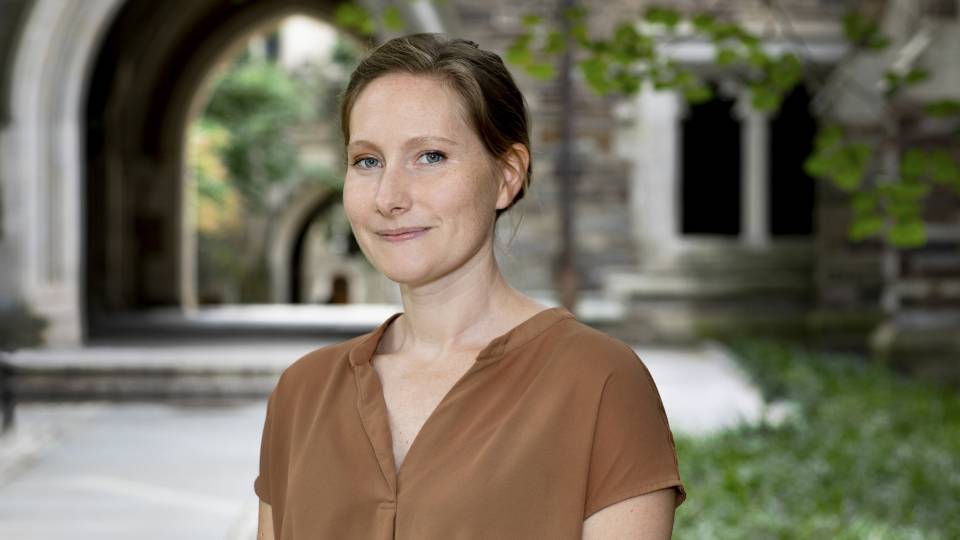Four Princeton faculty members are among 56 researchers who have been selected as the newest class of Howard Hughes Medical Institute investigators. Being selected is one of the highest honors in biomedical research.
Officials at HHMI, who describe the group as comprising some of the nation's most creative biomedical scientists, said they are committing more than $600 million over the investigators' first five-year term of appointment.
"These 56 scientists will bring new and innovative ways of thinking about biology to the institute's community," said Thomas Cech, the institute's president. "They are poised to advance scientific knowledge dramatically in the coming years, and we are committed to providing them with the freedom and flexibility to do so."
At Princeton, they include:
• Carlos Brody, associate professor of molecular biology and the Princeton Neuroscience Institute.
• Leonid Kruglyak, professor of ecology and evolutionary biology and the Lewis-Sigler Institute for Integrative Genomics.
• Yigong Shi, the Warner-Lambert/Parke-Davis Professor of Molecular Biology.
• David Stern, associate professor of ecology and evolutionary biology.
HHMI provides long-term, flexible funding that enables its researchers to pursue their scientific interests wherever they lead. The investigators continue to be based at their home institutions, typically leading a research group of 10 to 25 students, postdoctoral associates and technicians, but they become institute employees and are supported by field staff throughout the country.
Brody received his bachelor's degree in physics from Oxford University and his doctoral degree in computation and neural systems from the California Institute of Technology. He also has received a Sloan Foundation Research Fellowship. Brody is seeking to understand the mechanisms that control the behavior of brain cells involved in short-term memory and decision-making. He has developed important computer models of how the brain prompts neurons to switch tasks.
Kruglyak received his bachelor's degree in physics from Princeton and his doctoral degree in physics from the University of California-Berkeley. He has been the recipient of a James S. McDonnell Centennial Fellowship in Human Genetics, a MERIT award from the National Institute of Mental Health and a Burroughs Wellcome Fund Innovation Award in Functional Genomics. He had been a Hughes investigator at the Fred Hutchinson Cancer Research Center in Seattle but gave it up to come to Princeton and start a new lab. At Princeton's highly inter-disciplinary Lewis-Sigler Institute for Integrative Genomics, Kruglyak combines experimental and computational approaches to study the genetic basis of differences among individuals within a species. His lab currently uses as model organisms the baker's yeast S. cerevisiae and the nematode worm C. elegans. He also has made important contributions to the study of human genetic variation and disease.
Shi received his bachelor's degree in biology and mathematics at Tsinghua University in China and his doctoral degree in biophysics from Johns Hopkins University School of Medicine. He has received an Irving Sigal Young Investigator Award from the Protein Society, a Searle Scholar Award and a Rita Allen Scholar Award. He uses X-ray crystallography and other biophysical methods to understand the physical structures of proteins, the large molecules that carry out most of the critical functions inside cells. He has made important contributions to the field of apoptosis -- programmed cell death -- and is now studying proteins involved in causing Alzheimer's disease.
Stern received his bachelor's degree in biology from Cornell University and doctoral degree in ecology and evolutionary biology from Princeton. He is a fellow of the American Association for the Advancement of Science and a recipient of the David and Lucille Packard Foundation Fellowship for Science and Engineering. He studies the physical and behavioral differences between species of fruit flies by zeroing in on the genetic variations that generate these traits. He is particularly interested in the rules governing genetic evolution and the genetic causes of behavioral evolution.
Of the 31 institutions hosting the new investigators, only the Massachusetts Institute of Technology and the University of California-Berkeley, had more with five newly named investigators.
The four scientists join three other Princeton faculty members who are HHMI investigators: Bonnie Bassler, Trudi Schupbach and Eric Wieschaus, all professors of molecular biology. President Shirley M. Tilghman left her position as an HHMI investigator in 2001 when she became president of the university.
The 56 scientists were chosen from among 1,070 applications submitted in a nationwide competition, announced in 2007. Researchers with four to 10 years of experience as faculty members at more than 200 institutions were eligible to apply. To evaluate the applications, institute officials assembled review panels of distinguished biomedical scientists.
HHMI is a nonprofit medical research organization that ranks as one of the nation's largest philanthropies. The institute supports biomedical research and science education in the United States. The effort is largely carried out in collaboration with more than 60 universities, medical centers and other research institutions in the country. About 300 HHMI investigators, along with a scientific staff of more than 2,000, work at these institutions in Hughes laboratories.


